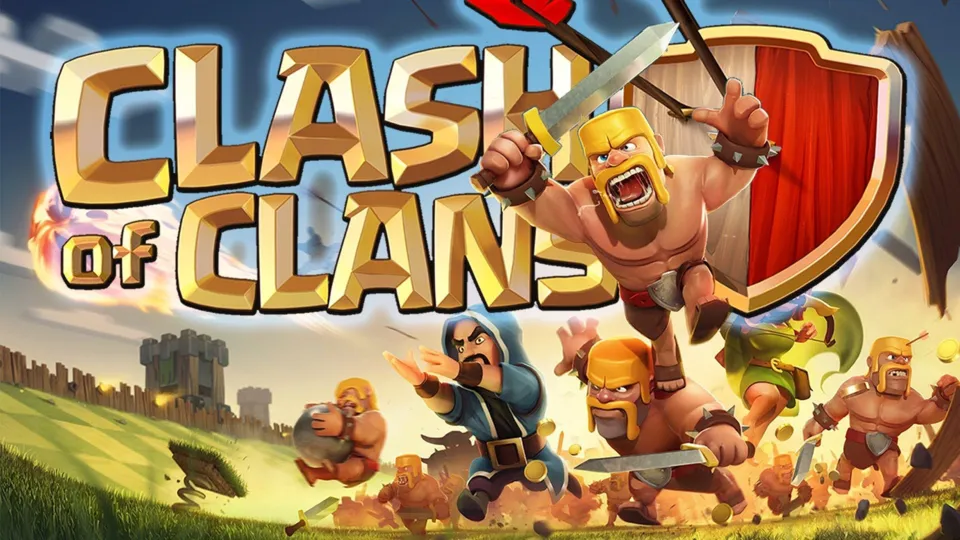
And no, it's not Diablo, Counter Strike or Tibia at all. We've grown out of it and we don't look for Satan in every production where you kill monsters or shoot passers-by. Adults and players have become an important group of consumers, moderately satisfied when someone calls them a stupid, dazzled bunch of antisocial individuals locked in cellars. "They play computer games for 20 hours instead of getting to work! - A few years ago, newspapers and television were talking like this. And then they were silent when they realized that for fear of a new medium they would not win, but only discourage potential customers and their wallets.
And wallets are important, certainly the most important. So how to get into a player's wallet? Well, it's not that simple. After all, we are customers familiar with promotions, bundled, games given away for free... Did anyone say "For free?!" - Yes, we have the key and even the lockers for the treasure chest! The creators of the miniature game understood it well, becoming a symbol of a new threat connected with games.

One of the most popular "free" games
First rule: If you want to earn money from the game, it has to be free.
This phrase applies especially to mobile games, where I have a problem with spending several dozen or so bucks on the title, and in the case of a PC or console I wouldn't even hesitate to withdraw my credit card. Spending money on mobile phones conflicts with my conscience, because these are only small productions to play on the toilet or on the bus. I won't spend a dollar on a puzzle game... What? Just Cause 3 in the new Monthly for 12 bucks? So what if I have more than 30 games to play, I have to have one!
Hands up, who gets caught up in this logic. But all right, we've moved away from the subject. Clue is that the creators realize that they won't get us to brutally take money, it takes a way to do that, and preferably a few. For this purpose, we employ addiction specialists to squeeze as much as possible out of the connected client.

Probably the worst production of 2018, 2 minutes of gameplay, a few hours of waiting or a dozen or so of money less in our wallet.
Daily quests - something seemingly pleasant, a task that gives a bonus box, currency, weapons in exchange for a simple task or just a login. A very common mechanism, not only in free productions. At the same time not very controversial, because: "Hey, we're not making you pay for the game, but we're giving away the content to loyal players! And it's hard not to agree with that, but in exchange for a lootbox we log in and do not abandon the game. We take part in statistics, and the title itself has a certain place in our lives. That's what it's all about.
Inviting friends - marketing is expensive and determines the life or death of the game. We can make a great production, but what if nobody hears about it? That's why studios spend huge amounts of money on google advertising and even TV spots. What if I gave the current player a big bonus if only his friend downloads the apps? The matter solves itself, and for free! Brilliant? Brilliant.
Wait, wait a minute - man is an impatient being by nature. Everything he wants to have immediately. So how to use it? Well, tell him to wait and let him skip waiting if he pays the right amount of currency. "The blacksmith will finish forging my sword next week? I will pay 2 dollars and get it immediately! Business is business. A disgraceful example is the last mobile Harry Potter or even Dungeon Keeper from EA. But this problem applies to almost all F2P mobile games. But it is nothing new. Ogame players know what's going on, but the difference was that everyone was waiting.
Internal premium currency - we rarely come across real money in games. Usually these are credits, cookies, gold coins, teddy bears and so on. They have a common feature in common, they are not associated with real money. We will see them only in a separate shop, where we will get a super offer with an 80% discount if we take the most expensive set of kryptonite monkeys or other rainbow sword as a premium currency.
Colourful luminaire and special effects - this is more of a technique to focus our attention. Creators must constantly develop their games if they want to be in the market. The rule of 6 seconds is applied, which means that every 6 seconds our mind gets a stimulus that attracts its attention.
"I can finish anytime I want." - and again, it's not about getting the money out, it's about the addiction. You can uninstall the app at any time, but in 4 minutes I must collect corn and feed the chickens again in half an hour. And that's how it works forever.
Pay or work - let's give the game free of charge and add DLC for 1000 premium coins. This way the free player has to play for about a month, or pay $10 and get additional characters, cards or options immediately. If someone accuses us of being a paywall player, we will say that everything can be unlocked in the game and it will be all right.
The box lottery is a low-blow. The system in which we get a prize, even for free and we can win something interesting (or more often - crap). The problem is that we have to buy more tickets, not really having a guarantee if it will be profitable. This system is not new and successfully functions in physical cards, but at least there we own the cards (the same thing is in Steem Monsters).

Hearthstone has successfully used several mechanics described here
Okay, but what exactly are the titles you have to watch out for? Well, it's not that easy, because practically all of them. This is our market. Scapegoats are usually Farmville, Clash of Clans, Clash Royale. But this is only the top of the list. Games have basically adopted 3 financing models:
Pay 2 win - spend XYZ amount of money to win with 80% of players
Pay or Wait - the mentioned omission of waiting, probably the worst possible model.
Pay to look amazing - probably the least harmful model. In exchange for real money we get access only to cosmetic add-ons, which do not change anything in the game. Good when we talk about free productions, worse when it appears in fully paid games.
So what's the advice? The same as always: look at what our children are playing and whether the money is disappearing from our card. Mobile phones are hard to see, what can be wrong with a colorful and non-violent game? Well, as usual the devil is well hidden, but is this article dedicated to children?
Anyway, I encourage you to browse the list of best earning games, if you don't believe me ;)
P.S. Of course, while I focus on mobile games, practically the same mechanisms are present in most free MMOs and unfortunately part of full-paid games. While sometimes it is not a problem (see: Path of Exile, Warframe) because developers need to make money, the Shadow of War example shows an unfavorable tendency for players.
Join Steem gaming community on SteemGC and OPGaming!
And don't forget about Archdruid!


